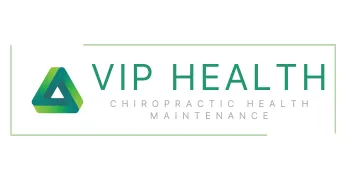Visit our Location
79H St Georges Bay Rd, Parnell
Give us a Call
0800 847 069
Send us a Message
admin@viphealth.co.nz
Opening Hours
Mon - Friday: 8AM - 7PM
Relief from the Chronic Stress and Tension of Modern Life ealt
In today's demanding world, your body and mind are under constant pressure. This relentless demand often leads to chronic stress, which settles in your body as persistent, painful tension. This isn't just in your head—it's a physical reality that can impact your health, clarity, and well-being.
Recognising that your stress has become physical is the first step toward relief. Our integrated approach is designed to release accumulated tension and address the root causes of your stress, providing the support you need to feel calm and comfortable in your own body again.
How Stress Creates Tension in Your Body
Stress is a full-body experience. When you feel stressed, your body’s sympathetic “fight-or-flight” response activates, flooding your system with hormones that cause your muscles to tighten. While this is a natural defence, ongoing stress keeps your muscles in a constant state of contraction, leading to significant physical and neurological symptoms.
Common physical signs of stress and tension include:
● Chronic Muscle Pain: Persistent tension leads to aches and knots, especially in the neck, shoulders, and back.
● Tension Headaches and Migraines: The result of unrelenting muscle tightness in your upper body and jaw.
● Digestive Discomfort: Stress can directly impact your gut, causing pain, bloating, and other issues.
● Exhaustion and Poor Sleep: A body holding onto tension struggles to rest, leading to a cycle of fatigue and heightened stress.
Our Philosophy: A Holistic Path to Lasting Relief
How to Release Stress Quickly (Under 2 minutes)
The Professional's Emergency Reset:
1. 4-7-8 Breathing: Inhale for 4 counts, hold for 7, exhale for 8. Repeat 3 times.
2. Tension Release: Clench fists for 5 seconds, then release completely.
3. 3-3-3 Rule: Name 3 things you see, 3 sounds you hear, move 3 body parts.
Desk-Based Relief (30 seconds):
● Sit tall, roll shoulders backward 5 times
● Turn head left, then right, holding 3 seconds each
● Take 3 deep breaths, expanding your ribcage
Frequently Asked Questions about Stress & Tension
Why is my body holding onto so much tension?
Your body's natural stress response causes muscles to contract. Modern stressors—like work deadlines, traffic, or financial worries—can keep this response active for long periods. When your muscles don't get a chance to relax, they remain in a state of partial contraction, which you experience as tightness, stiffness, and pain.
Why is my body holding onto so much tension?
● Constant Aches and Pains: Especially in your neck, shoulders, jaw, or back.
● Difficulty Sleeping: You feel "wired but tired" and can't fully relax at night.
● Frequent Headaches: A dull, aching head pain, often starting at the back of the head or neck.
● Irritability and Brain Fog: Mental fatigue and difficulty concentrating are common when your body is tense.
● Digestive Issues: A nervous or upset stomach that has no other clear medical cause.
Where does stress-related tension accumulate most?
While you can feel it anywhere, tension commonly builds up in the:
● Neck, Shoulders, and Upper Back: The classic areas where we "carry our stress."
● Jaw: From unconscious teeth clenching or grinding (bruxism).
● Stomach and Gut: Often called the "second brain," this area is highly responsive to stress.
● Hips: This area can hold deep-seated tension, leading to stiffness and reduced mobility.
What does high tension feel like?
High tension feels like a constant state of stiffness, soreness, or hardness in your muscles. You may have painful knots (trigger points) and find your range of motion is limited. Over time, this chronic tension can contribute to serious health issues, including high blood pressure, a weakened immune system, and an increased risk for anxiety and depression.
How can I release tension from my whole body?
Releasing deep-seated tension requires a combination of approaches:
● Targeted Stretching: Gentle, sustained stretches can lengthen and relax tight muscle fibers.
● Heat Therapy: A warm bath or heating pad increases blood flow and soothes muscle tightness.
● Mindful Breathing: Deep, diaphragmatic breathing activates the body’s relaxation response.
● Chiropractic Adjustments: A chiropractor can restore proper spinal and joint alignment, releasing pressure on the nervous system and allowing chronically tense muscles to relax.
● Professional Massage: A skilled therapist can manually work out knots and release tension.
● Progressive Muscle Relaxation (PMR): This technique teaches you to consciously tense and then release muscle groups, helping you regain control.
Begin Your Journey to a Calmer, More Comfortable You
Taking the first step to address chronic tension is an investment in your long-term health. The dedicated team at VIP Health Parnell is here to guide you toward a more balanced and pain-free life.
Ready to let go of stress and release tension?

About Us
At VIP Health, our core objectives are deeply rooted in our values of Value, Integrity, and Performance. Our core objective as a health practitioners is to provide exceptional, patient-centred care that delivers real value while maintaining the highest standards of integrity and performance.
Opening Hours
Monday - 08:00-17:00
Tuesday - 08:00-17:00
Wednesday - 08:00-17:00
Thursday - 08:00-17:00
Friday - 08:00-17:00
Saturday - 09:00-12:00
Sunday - CLOSED




